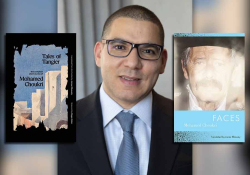Setting the Scene in Latvia: An Interview with Inga Ābele

A Poem by Inga Ābele
what are you my beloved night pragmatist
darkness in rings
wine and an ancient harpsichord in the corner
snakes sleep in alcohol do you see
you said –
how profligacy sleeps
waiting for the kiss of awakening
there’s such a profession – to attract looks
and to spin away in the sparks of the furnace
Translation from the Latvian
By Inara Cedrins
Editorial note: From Nakts pragmatike (2000; Night pragmatist).
Inga Ābele, born in 1972 in Riga, has written plays and screenplays, collections of poetry, stories and novels. Her play Dark Deer was staged in Latvia, at the Stuttgart State Theatre, the Bonner Biennale, and in Greece, being made a feature film in 2006. Iron Weed was staged in Latvia, Denmark, and Finland; Jasmine premiered in Latvia and was staged in Lucerne. Her poetry collections include Night Pragmatist and a collection of prose poems, The Horses of Atgazene Station. Her 2001 novel, Fire Will Not Wake You, was published in Lithuanian in 2007. Her story collection Notes During the Time of Snow won the Annual Award for Literature in 2004, and another collection, Still Life with Pomegranate, was published in French translation in 2005. Ābele’s 2008 novel High Tide was published in in Swedish translation in 2009 and in English translation in 2013.
Seven years ago Ābele left Riga to live in deep in the forest near Sigulde, site of an ancient castle, with her hot-air balloonist partner, Gunars Dukste. I took the electric train out to visit them in September, checking with a woman already on the train whether it was going to the right destination. “Ogas vai sēnes? (berries or mushrooms?),” she asked me, after confirming it was. “Or do you live there?”
“Oh, no, I’m American,” I told her. (I did try to “repatriate” there in 2005–2006, which was disastrous.)
We ride out past sandy tracks through the spruce forest, heavy apples hanging from a tree—it is so fecund. Pale algae shimmering, a plenitude of lichens, ferns turning bronze and gold. The station I get off at is an hour from Riga, just before Sigulde, and no one else gets off there. Only forest all around; I think, You’d have to wave for the train to stop, going back.
Gunars appears to pick me up in an SUV; getting out and shaking my hand, he says, “So we meet in the middle of the forest this time!” He and Inga stayed with me when she made her first trip to America in 2006, Gunars participating in the hot-air balloon festival in Albuquerque, where I then lived, and I read translations of Ābele’s poetry while she stood beside me for the Words on Fire series.
They live on a smallholding that belonged to a baron in the 1800s: wild boars come at night to dig up the lush grass with their snouts and eat it. A tower is set up for a neighboring hunter who hasn’t had any luck yet. They’ve built a perfect, snug house on the foundations of what was once the cattle shed, with the weathered old outbuildings still standing about, a great stack of wood ready for winter. Gunars takes haunting photos of the countryside of Latvia while floating over it.
Inga asked me to come between 9 and 11am, because she has a three-week-old daughter who naps during that time. She is finishing up a novel titled The Wicker Monk, which has been three years in the writing. The “wicker” in the title comes from the way in Latgale, where the protagonist lives a life of celibacy, everything is woven together for strength, large families hold together. After that she has a contract to write a historical novel about collectivism in the 1950s in Latvia, due to be finished in 2015.
“Latvian history has had little dramatization in Latvia,” she says.
I ask if Dark Deer, and this work, are social realism, and she says no. “A novel is a dramatic work,” she says. “From documents, you can’t tell what really happened.” But she tells me that she did write Dark Deer while a student, wanting to protest and change the social conditions in Latvia.
In the Baltic countries everyone is talking about Sofi Oksanen; I would have liked to have interviewed her, but she would not be in Helsinki when I was. I decided to ask Inga Ābele what I would have asked her: How do you make the choice whether to write a play or novel? She says they’re not really different: “Action is necessary, whether it’s a play or novel.”
She is reading the Alexandria Quartet, and the language engrosses her, its use. She considers that she only has one “real” book of poetry out, Night Pragmatist, because Atgazene Station is prose poems: she has new poems, including the cycle she wrote on her flying visit to Mexico after visiting Albuquerque, and intends to pull them together into a collection. I promise to translate.
The baby wakes, and is so content, smiling and waving tiny hands. Inga has named her Lena after her grandmother, much loved and written about in poetry, especially the long poem “Elysian Fields” that closes The Horses of Atgazene Station, and Alexandra, after the Alexandria Quartet.
“No one knows the source of the name, Atgazene,” she says. “It’s by Tornakalns, where we lived—my parents are still there. Oh, you should go see my parents, they would love it!”
She is a generous, warm person, finding me books that came out recently that I might like to translate. She tells me that she made the most money this year from the sale of a screenplay to China; she had it up as available on a Russian website. Her nineteen-year-old son had fallen in debt to loan sharks, and she was being pressured to sign the documents to cover the debt for him at immense interest; the funds came through in the nick of time.
Inga gives me a jar of honey that I can have in the morning at the hostel where I’m staying in Riga, and Gunars drives me back.
We hope that Inga can make a second trip to the US for an event for my Baltic anthology at Poets House in New York in 2014. “It is my dream to go there,” she says. “Also to Chicago!”
Her life deep in the forest and her literary success early in life are like a dream. Ābele was honored as Writer Laureate at the 2008 Prose Readings festival in Latvia, and in the same year her novel High Tide received two prizes, the Annual Literature Prize and the Baltic Assembly Prize for Literature. She was also a recipient of a Prose Readings appreciation award in 2009.
October 2013














